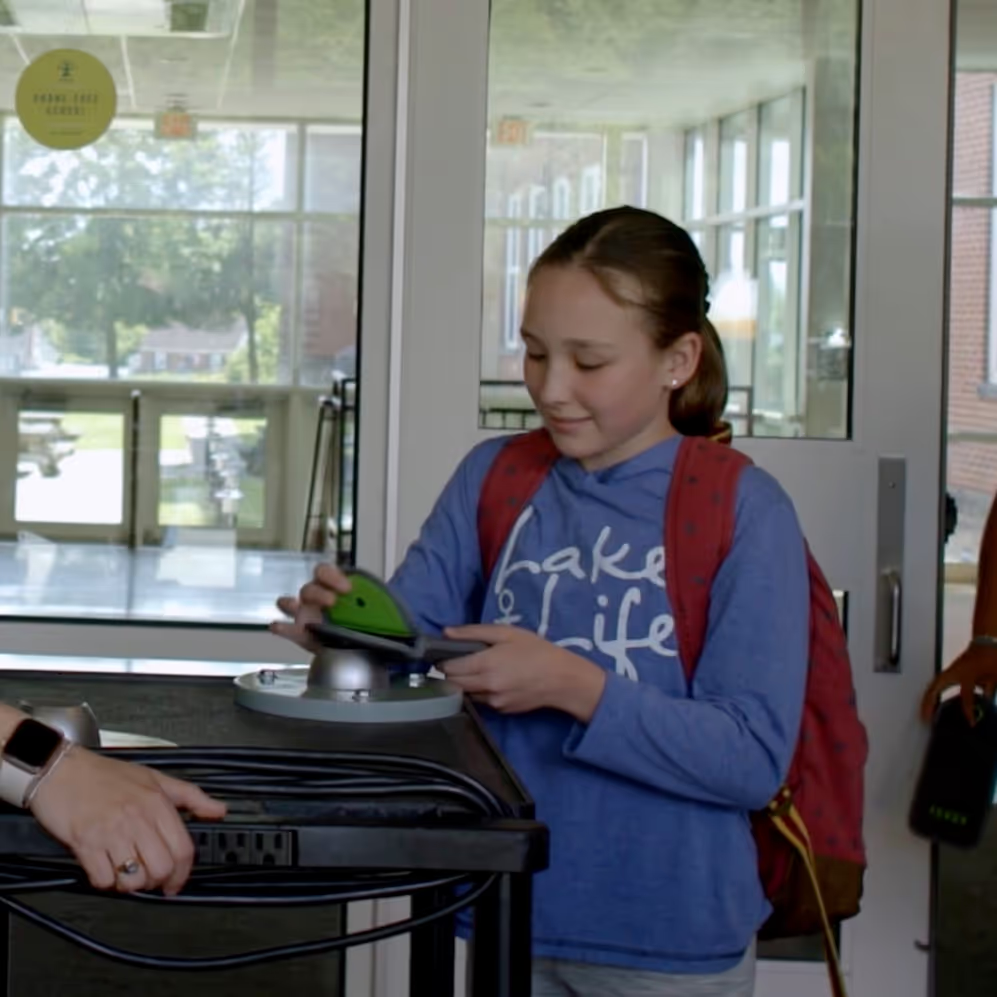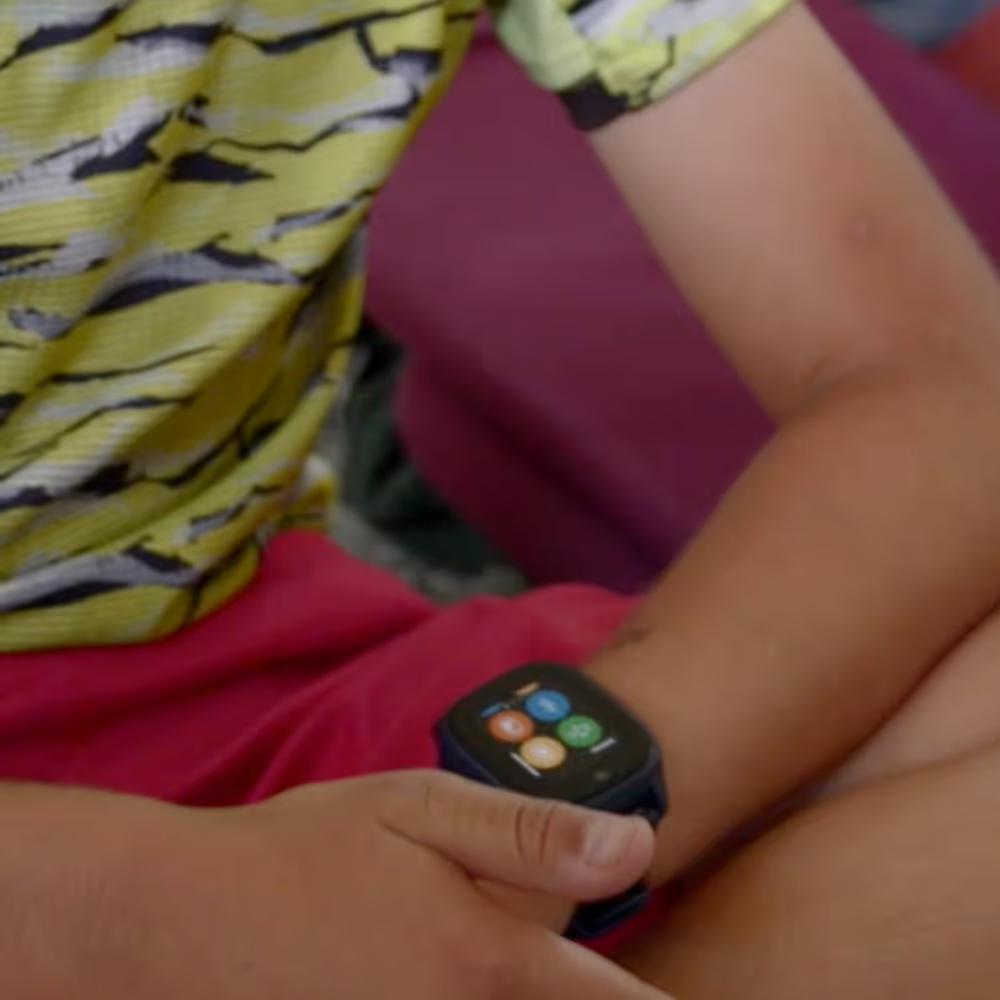



One of the hardest things in parenting is helping kids stay focused while doing homework because of all the internal distractions, like dread of working on certain tasks, or the desire to check in with friends, and the many external technological distractions that live right on the same device they are using for homework. In a study by research psychologist, Larry Rosen, he found that “students studied less than 6 minutes before switching to technological distractors.” In this same research, he found that students who had study strategies were able to stay on task longer.
After looking into research on the topic, and working with my teens on this, here are some suggestions for helping your children stay focused while doing their homework.
1. Spend several nights validating how hard it must be for children and adolescents to stay on task when doing homework given all the various tech distractions like Snapschats, texts, games etc. right on their homework device. Acknowledge that it is hard for you to stay on task when you are doing your work, taxes, etc. online because the pull of more fun activities is just one tab away.
2. Ask your kids what has worked for them and what has not? Help them understand that you are not concerned about the short term of tonight’s homework, but how this is an important skill that will serve them well throughout their life.
3. If they own a cell phone or other personal device besides the screen they are working on, talk about how important it is to put it out of site for extended periods of time. For my teens, they try to make a habit of putting their phones in another room during study time and then they check it about every 30 minutes for a break. I know many adolescents will be very opposed to not having their phone by their side. Try an experiment with them—have them keep their phone nearby and study for 15 minutes, and then have them put the phone in another room for 15 minutes and study. Then, talk about the experience.
3. Use a timer. This can be very effective—an old-fashioned kitchen timer is ideal. Have them set a goal to study uninterrupted for a certain amount of time on a subject, 15 minutes for example. A set study interval lets the brain know an end is coming. This can help increase motivation to delve into a subject. The timer can be set for even 10 minutes or less.
4. Encourage them to start their homework with their most dreaded assignment by saying to just spend five minutes on it. It may be that after the five minutes they want to continue. My son took an online course called “Learning How to Learn” where he discovered that the brain experiences the thought of doing work it does not want to do as physical pain. That's why it feels relieving in the moment to distract yourself with something else—otherwise known as procrastination. However, just a couple minutes into starting the feared task, that sensation of pain dissipates.
5. Breaks—spend time talking about them. In Daniel Pink’s book, Drive, he writes about how breaks were traditionally frowned upon in high performing work settings, but are now seen as critical to productivity. Breaks are particularly effective when they contain these elements: movement, fresh air, social interactions (so checking in with friends via social media counts for this—but ideally it would not be the only break students go to).
For today’s Tech Talk Tuesday here are some questions to get the conversation going.
April 24, 2018
As well as our weekly blog, we publish videos like this one every week on the Screenagers YouTube channel
Learn more about showing our movies in your school or community!
Join Screenagers filmmaker Delaney Ruston MD for our latest Podcast

Learn more about our Screen-Free Sleep campaign at the website!
Our movie made for parents and educators of younger kids
Learn more about showing our movies in your school or community!
Learn more about showing our movies in your school or community!
Join Screenagers filmmaker Delaney Ruston MD for our latest Podcast

Learn more about our Screen-Free Sleep campaign at the website!
Our movie made for parents and educators of younger kids
Join Screenagers filmmaker Delaney Ruston MD for our latest Podcast
As we’re about to celebrate 10 years of Screenagers, we want to hear what’s been most helpful and what you’d like to see next.
Please click here to share your thoughts with us in our community survey. It only takes 5–10 minutes, and everyone who completes it will be entered to win one of five $50 Amazon vouchers.

One of the hardest things in parenting is helping kids stay focused while doing homework because of all the internal distractions, like dread of working on certain tasks, or the desire to check in with friends, and the many external technological distractions that live right on the same device they are using for homework. In a study by research psychologist, Larry Rosen, he found that “students studied less than 6 minutes before switching to technological distractors.” In this same research, he found that students who had study strategies were able to stay on task longer.
After looking into research on the topic, and working with my teens on this, here are some suggestions for helping your children stay focused while doing their homework.
1. Spend several nights validating how hard it must be for children and adolescents to stay on task when doing homework given all the various tech distractions like Snapschats, texts, games etc. right on their homework device. Acknowledge that it is hard for you to stay on task when you are doing your work, taxes, etc. online because the pull of more fun activities is just one tab away.
2. Ask your kids what has worked for them and what has not? Help them understand that you are not concerned about the short term of tonight’s homework, but how this is an important skill that will serve them well throughout their life.
3. If they own a cell phone or other personal device besides the screen they are working on, talk about how important it is to put it out of site for extended periods of time. For my teens, they try to make a habit of putting their phones in another room during study time and then they check it about every 30 minutes for a break. I know many adolescents will be very opposed to not having their phone by their side. Try an experiment with them—have them keep their phone nearby and study for 15 minutes, and then have them put the phone in another room for 15 minutes and study. Then, talk about the experience.
3. Use a timer. This can be very effective—an old-fashioned kitchen timer is ideal. Have them set a goal to study uninterrupted for a certain amount of time on a subject, 15 minutes for example. A set study interval lets the brain know an end is coming. This can help increase motivation to delve into a subject. The timer can be set for even 10 minutes or less.
4. Encourage them to start their homework with their most dreaded assignment by saying to just spend five minutes on it. It may be that after the five minutes they want to continue. My son took an online course called “Learning How to Learn” where he discovered that the brain experiences the thought of doing work it does not want to do as physical pain. That's why it feels relieving in the moment to distract yourself with something else—otherwise known as procrastination. However, just a couple minutes into starting the feared task, that sensation of pain dissipates.
5. Breaks—spend time talking about them. In Daniel Pink’s book, Drive, he writes about how breaks were traditionally frowned upon in high performing work settings, but are now seen as critical to productivity. Breaks are particularly effective when they contain these elements: movement, fresh air, social interactions (so checking in with friends via social media counts for this—but ideally it would not be the only break students go to).
For today’s Tech Talk Tuesday here are some questions to get the conversation going.
April 24, 2018
As well as our weekly blog, we publish videos like this one every week on the Screenagers YouTube channel
Sign up here to receive the weekly Tech Talk Tuesdays newsletter from Screenagers filmmaker Delaney Ruston MD.
We respect your privacy.

One of the hardest things in parenting is helping kids stay focused while doing homework because of all the internal distractions, like dread of working on certain tasks, or the desire to check in with friends, and the many external technological distractions that live right on the same device they are using for homework. In a study by research psychologist, Larry Rosen, he found that “students studied less than 6 minutes before switching to technological distractors.” In this same research, he found that students who had study strategies were able to stay on task longer.
After looking into research on the topic, and working with my teens on this, here are some suggestions for helping your children stay focused while doing their homework.
1. Spend several nights validating how hard it must be for children and adolescents to stay on task when doing homework given all the various tech distractions like Snapschats, texts, games etc. right on their homework device. Acknowledge that it is hard for you to stay on task when you are doing your work, taxes, etc. online because the pull of more fun activities is just one tab away.
2. Ask your kids what has worked for them and what has not? Help them understand that you are not concerned about the short term of tonight’s homework, but how this is an important skill that will serve them well throughout their life.
3. If they own a cell phone or other personal device besides the screen they are working on, talk about how important it is to put it out of site for extended periods of time. For my teens, they try to make a habit of putting their phones in another room during study time and then they check it about every 30 minutes for a break. I know many adolescents will be very opposed to not having their phone by their side. Try an experiment with them—have them keep their phone nearby and study for 15 minutes, and then have them put the phone in another room for 15 minutes and study. Then, talk about the experience.
3. Use a timer. This can be very effective—an old-fashioned kitchen timer is ideal. Have them set a goal to study uninterrupted for a certain amount of time on a subject, 15 minutes for example. A set study interval lets the brain know an end is coming. This can help increase motivation to delve into a subject. The timer can be set for even 10 minutes or less.
4. Encourage them to start their homework with their most dreaded assignment by saying to just spend five minutes on it. It may be that after the five minutes they want to continue. My son took an online course called “Learning How to Learn” where he discovered that the brain experiences the thought of doing work it does not want to do as physical pain. That's why it feels relieving in the moment to distract yourself with something else—otherwise known as procrastination. However, just a couple minutes into starting the feared task, that sensation of pain dissipates.
5. Breaks—spend time talking about them. In Daniel Pink’s book, Drive, he writes about how breaks were traditionally frowned upon in high performing work settings, but are now seen as critical to productivity. Breaks are particularly effective when they contain these elements: movement, fresh air, social interactions (so checking in with friends via social media counts for this—but ideally it would not be the only break students go to).
For today’s Tech Talk Tuesday here are some questions to get the conversation going.
April 24, 2018
As well as our weekly blog, we publish videos like this one every week on the Screenagers YouTube channel

This year, millions of students are experiencing a major shift: school days without phones, smartwatches, or other personal devices. Today we explore the wins, hurdles, and solutions helping schools succeed. We also share our resources that you can use to support technology policy changes in your schools.
READ MORE >
I recently sat down with middle school principal Zach at his school in Washington State. We talked about the challenges Zach and his team faced in his early years as principal when students used phones during school, and how he brought about a powerful transformation by having phones and smartwatches put away in locked pouches for the whole school day. In today’s blog, to raise awareness of the challenges, I share five real examples from Zach of the troubling ways students use phones at school to be unkind.
READ MORE >
It is with great pleasure that I share with you today a piece that Lisa Tabb and I did for Jonathan Haidt's (Author of The Anxious Generation) and researcher Zack Rausch's Substack blog — After Babel. In it, we discuss the rise in use of smartwatches in elementary schools and the problems they pose. There is a real cost to arming (pun intended) our kids with these devices and sending them to school. Now is the time to stop and fully address this topic and ensure that schools become smartwatch and phone-free.
READ MORE >for more like this, DR. DELANEY RUSTON'S NEW BOOK, PARENTING IN THE SCREEN AGE, IS THE DEFINITIVE GUIDE FOR TODAY’S PARENTS. WITH INSIGHTS ON SCREEN TIME FROM RESEARCHERS, INPUT FROM KIDS & TEENS, THIS BOOK IS PACKED WITH SOLUTIONS FOR HOW TO START AND SUSTAIN PRODUCTIVE FAMILY TALKS ABOUT TECHNOLOGY AND IT’S IMPACT ON OUR MENTAL WELLBEING.
